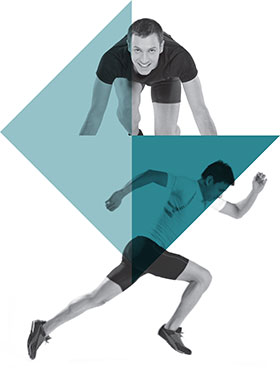Our Team: a new relationship resource for gay men
Our Team: a new relationship resource for gay men
HIV Australia | Vol. 12 No. 1 | March 2014
By Dean Murphy
Dean Murphy profiles a resource designed to assist gay men negotiate successful relationship agreements.
AFAO’s health promotion program has just launched a new booklet called Our Team: A Guide to Negotiating Relationships for Gay Men.
This represents an important new addition to materials on this subject. The primary target audience for the resource is gay men in the early stages of relationships, particularly younger gay men.
Steady relationships form an important feature of gay men’s kinship practices. Around 55–60% of gay men surveyed in gay communities in Australian cities reported that they are currently in a relationship and this proportion has remained stable over time.1Of the men in relationships, half reported that they also have sex with casual sex partners.
 Almost one-third of relationships are less than one year old, which suggests a reasonably high proportion of relationship turnover.2
Almost one-third of relationships are less than one year old, which suggests a reasonably high proportion of relationship turnover.2
However, another recent national cross sectional survey of gay men found that a quarter of men in relationships had been with the same partner for more than ten years.3
In terms of sexual practices, it is quite common for men in relationships to report that they do not use condoms for sex with their partner. In fact around half of men in relationships report not using condoms, and this proportion has also remained stable over time.
Not surprisingly, unprotected sex was much more likely among men in relationships with someone of the same HIV status. Despite overall trends in relationships remaining quite stable, there have been some changes in the last few years, mainly related to patterns of HIV status and sexual agreements.
Recent surveys of gay men have indicated that HIV-negative seroconcordant relationships (where both partners are HIV-negative) have generally become much more likely over time and serodiscordant relationships have become less likely.
This suggests a greater focus on HIV-negative men knowing each other’s HIV status and finding a same-status partner. Sexual agreements related to reducing HIV risk were first identified in gay men’s relationships in the early 1990s, specifically ‘negotiated safety’ agreements between HIV-negative men.
These are explicit agreements to limit unprotected sex to the relationship and for all sex with casual partners to exclude anal sex or to always include condoms. Agreements include understandings about sex within the relationship and with outside partners. Negotiated safety agreements have become less common over time in all jurisdictions.4
Resource development
AFAO organised a national meeting of experts (including people working in health promotion, campaign development, peer education, counselling and research) to discuss the needs of gay men and relationship agreements, in order to develop the content for the relationship resource.
 The experts reviewed the available literature and previous campaign/education materials, and drew on their own experience with clients and gay community to develop key themes to be covered in the resource.
The experts reviewed the available literature and previous campaign/education materials, and drew on their own experience with clients and gay community to develop key themes to be covered in the resource.
These were: relationship aspirations and dynamics; agreements; and communication.
The identification of these themes suggested the need for a resource that assisted men – especially those early in relationships – with developing negotiated safety agreements.
The booklet utilises sport metaphors to emphasise the concepts of play, team work and youth.
The booklet is packaged inside a fold-out sleeve that serves as a relationship agreement worksheet.
The ‘Our Team’ booklet is available from venues, clinics and your local AIDS Council.
References
1 Holt, M. (2012, October). Trends in gay men’s relationships: findings from the Gay Community Periodic Surveys. Presentation to AFAO Campaign Workers’ Meeting, Sydney.
2 ibid.
3 Leonard, W., Pitts, M., Mitchell, A., Lyons, A., Smith, A., Patel, S., et al. (2012) Private Lives 2: The second national survey of the health and wellbeing of gay, lesbian, bisexual and transgender (GLBT) Australians. Monograph Series Number 86. The Australian Research Centre in Sex, Health and Society, La Trobe University, Melbourne.
4 Holt, M., (2012), op. cit.
Dean Murphy works at AFAO in the areas of HIV health promotion and biomedical prevention.

